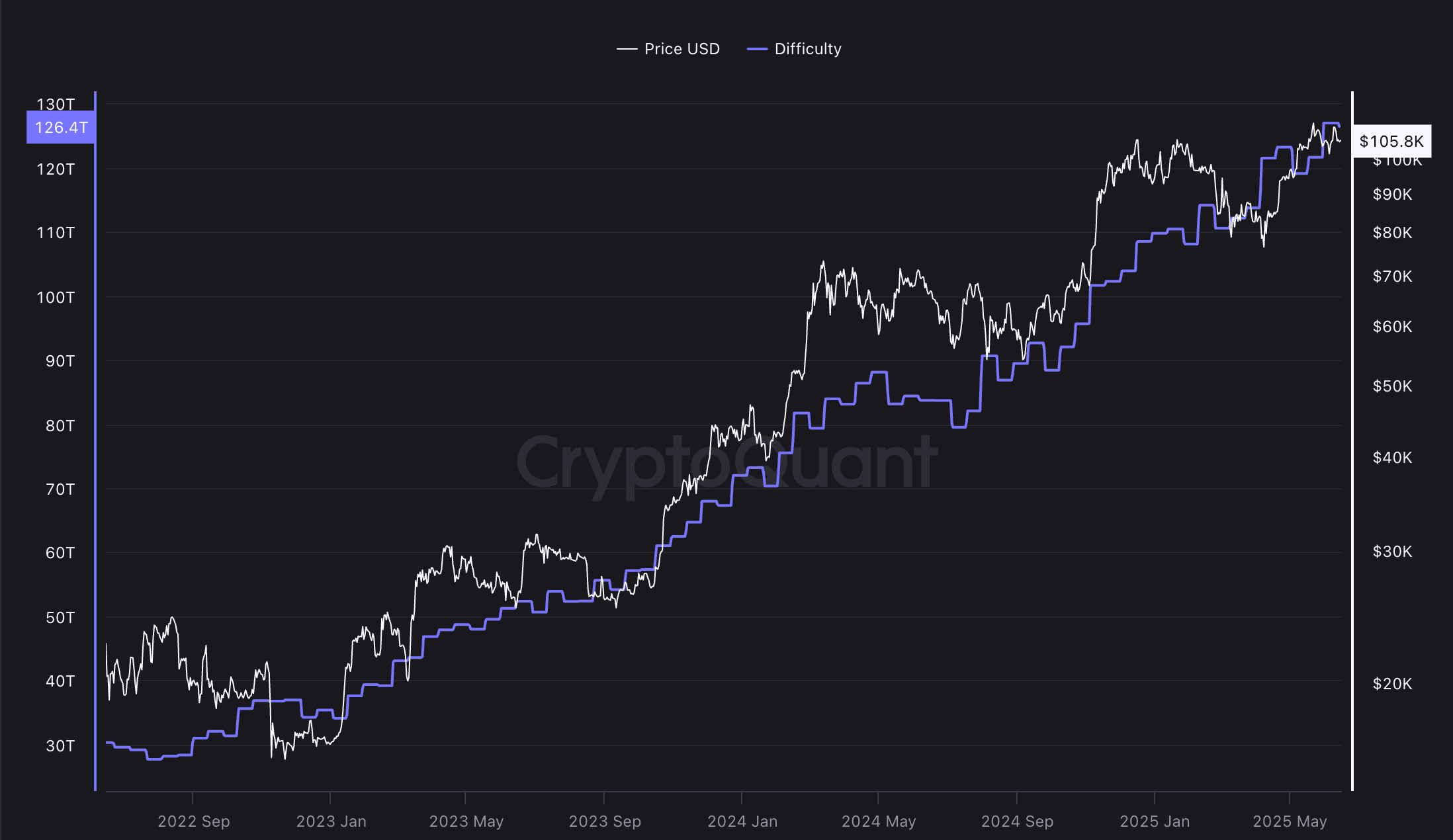Bitcoin mining difficulty slightly decreased on Saturday, after reaching a record high of 126.9 trillion on May 31 – the start of the previous difficulty adjustment cycle. According to data from CryptoQuant, the current difficulty is around 126.4 trillion.
Both mining difficulty and network hashrate – a related metric representing the total computational power securing the Bitcoin protocol – have risen, leading to increased competition among miners and higher mining costs.
Miners continue to face financial pressure due to block rewards being reduced after the April 2024 halving, rising operating costs, and increasing mining difficulty, forcing many companies to adjust strategies to maintain profitability.

Some publicly listed mining companies are scaling up and accumulating Bitcoin
Despite the challenges in the fiercely competitive mining sector, some listed Bitcoin mining companies are still expanding capacity and choosing to hold BTC as a corporate treasury asset.
MARA mining company reported a 35% increase in Bitcoin production in May, amid the network hashrate reaching a record high and significant market volatility.
On April 5, the Bitcoin network's hashrate first surpassed 1 zettahash per second (ZH/s) – a significant milestone for this decentralized monetary protocol.

Despite the harsh environment, MARA claims to have mined 950 BTC in May and raised its treasury reserves to 49,179 BTC – placing the company among the largest Bitcoin holders in the world.
"A record production month for MARA – and we did not sell any Bitcoin," CFO Salman Khan wrote on X on June 3.
CleanSpark – a mining company focused on clean energy – also increased its output in May 2025. According to the monthly report, the company mined 694 BTC, a 9% increase compared to April, raising total reserves to 12,502 BTC.
"We have increased the month-end hashrate to 45.6 exahash per second (EH/s), up 7.5% from the previous month," said CleanSpark's Chairman and CEO Zack Bradford in the May update.
The increasing number of mining companies accumulating BTC as a treasury asset shows a clear shift in business strategy – from selling coins to cover operating costs to holding them for long-term value.